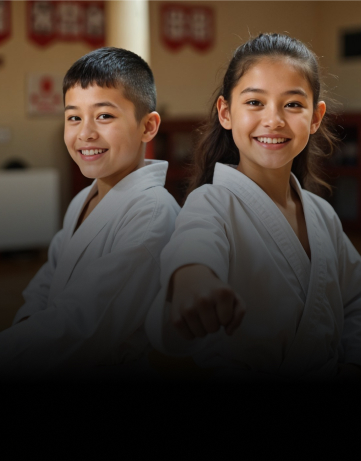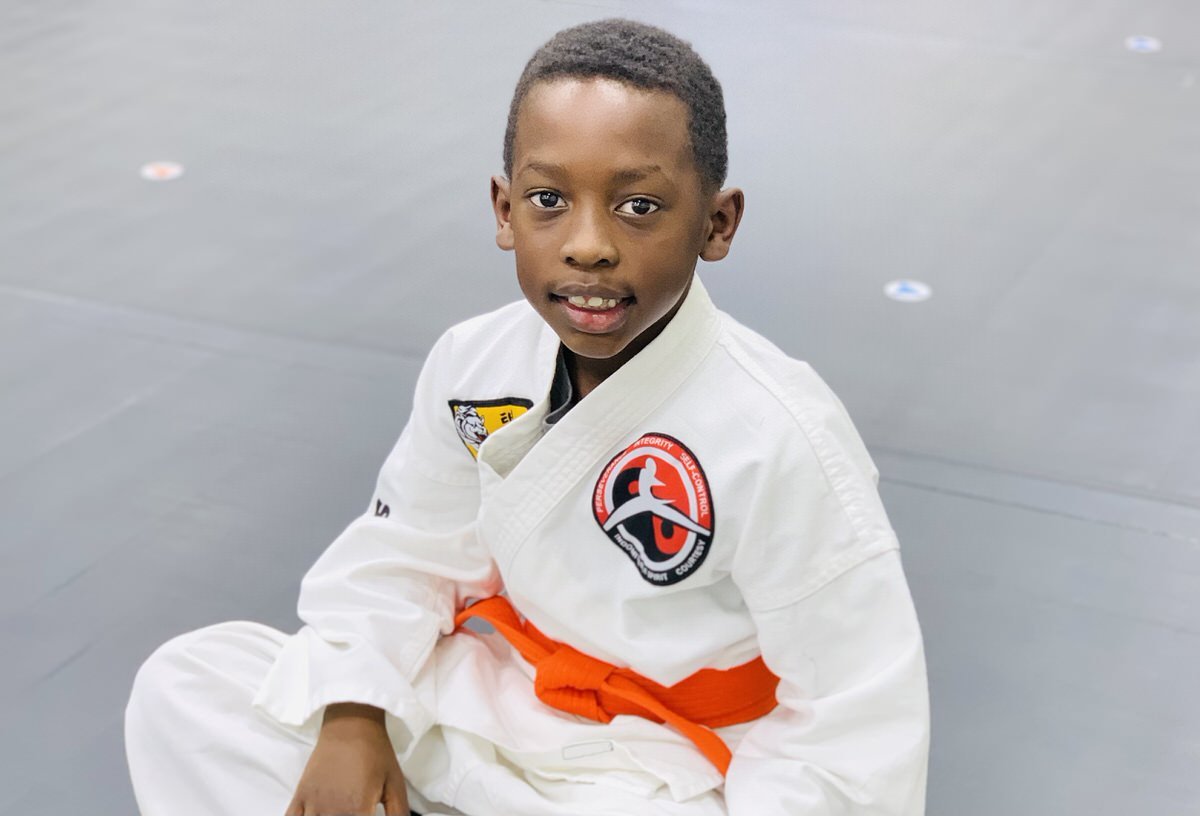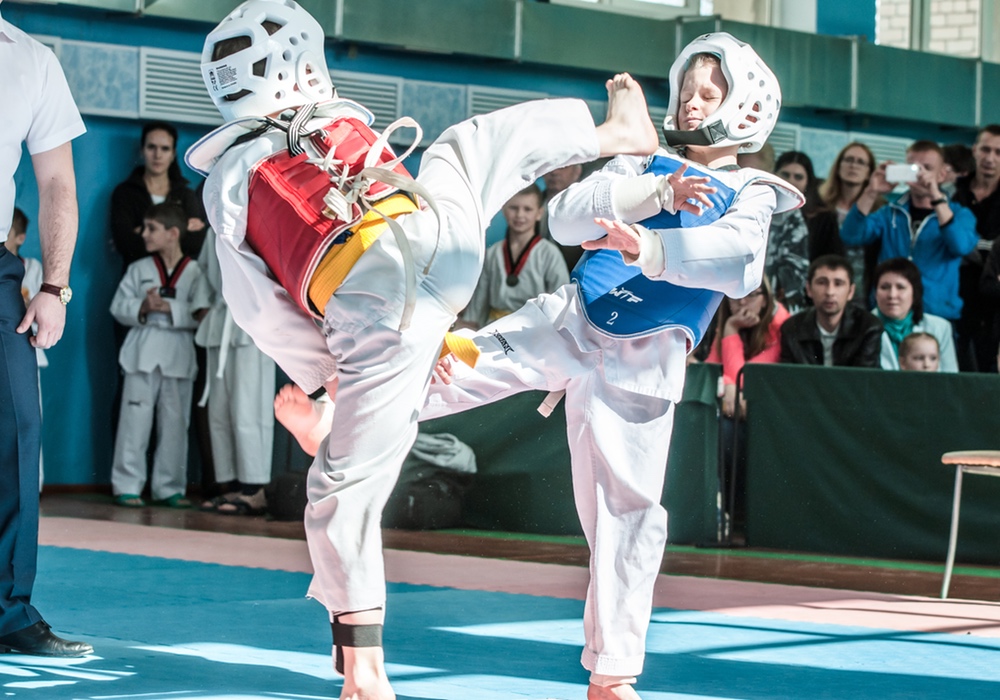How Karate for Children Can Increase Self-confidence and Discipline in Young Martial Artists
Karate for youngsters supplies a distinct chance to construct confidence and discipline in young martial musicians. As they learn brand-new techniques and face difficulties, they not just obtain abilities but also create a solid sense of self-regard. This organized setting encourages them to respect the journey of enhancement. How does this training translate into their daily lives? Discover the much deeper links that make karate even more than simply a sporting activity.
The Importance of Confidence in Childhood Development
Confidence is a crucial structure block in childhood years growth. When you support your youngster's self-worth, you equip them to deal with obstacles, take threats, and reveal themselves easily. Youngsters with confidence are much more ready to check out new activities and social situations, which can cause enduring relationships and valuable experiences.Encouraging your kid to get out of their comfort area cultivates durability. They learn that failing isn't completion yet instead a tipping stone to success. By commemorating their success, despite how small, you aid them acknowledge their abilities and worth.In this trip, assistance and positive support from you play a crucial role. Whether it's through appreciation or just existing, your participation improves their confidence. As they expand, this confidence ends up being a long-lasting asset, furnishing them to navigate both obstacles and possibilities with a strong feeling of self.
Exactly How Martial Arts Shows Self-control and Focus
Martial arts helps you construct self-control and emphasis with its structured training regimen. As you exercise mindfulness during each session, you'll find out to concentrate far better both on and off the mat. Plus, setting and attaining goals in martial arts reinforces your capability to remain conscientious and committed.
Structured Training Program
While you participate in karate training, you'll quickly find how a structured regimen imparts discipline and focus in young specialists. Each course adheres to a certain layout, including warm-ups, strategy practice, and sparring. This uniformity instructs you to value the procedure and commit to improvement. As you learn forms and methods, you create a feeling of responsibility for your own progress.The structured atmosphere motivates you to establish objectives, whether mastering a new belt or improving a kata. You'll locate that staying concentrated during courses and drills develops your focus. The technique you cultivate in karate extends past the dojo, positively impacting your schoolwork and daily routines. Each session strengthens the significance of dedication, helping you turn into a more disciplined individual.
Mindfulness in Practice
As you practice karate, you'll find that mindfulness becomes a vital component of your training. Each action needs your complete interest, assisting you stay concentrated on the here and now minute. You'll find out to disregard distractions and focus on your breathing, activities, and purposes. This enhanced recognition hones your reflexes and improves your discipline.During sparring or forms, you'll discover the importance of being mentally existing - Karate Salisbury MD. You'll observe exactly how this focus not only boosts your method yet also develops your confidence. By exercising mindfulness in martial arts, you cultivate patience and resilience, important traits that extend beyond the dojo. In this means, martial arts instructs you to harness your mind, helping you create a self-displined technique to difficulties both on and off the floor covering

Goal Setup Techniques
Setting goals in martial arts isn't nearly earning belts; it's an effective means to cultivate self-control and emphasis. When you set details, possible targets, you develop a roadmap for your progress. Instead of just aiming to boost your kicks, attempt concentrating on mastering a particular method each month. This strategy keeps you motivated and engaged.Breaking down larger objectives into smaller sized, convenient actions helps you track your progress and celebrate little triumphes in the process. Whether it's refining your position or increasing your sparring endurance, every goal strengthens your commitment. As you accomplish these objectives, you'll develop self-confidence in your abilities and create a strong sense of discipline that extends beyond the dojo into everyday life.
Building Resilience Via Martial Arts
Martial arts, particularly karate, provides youngsters a special chance to develop durability in a helpful setting. In courses, they deal with difficulties that press their limitations, whether it's grasping a new technique or competing with a partner. Each setback, like a missed out on kick or a shed suit, comes to be an opportunity to discover and grow.As they practice, kids find out to welcome pain and keep trying, even when points obtain challenging. They discover that failing isn't completion; it belongs to the journey. This way of thinking aids them bounce back stronger, not simply in the dojo, but in everyday life.With each challenge they get over, your kid develops confidence in their capacity to deal with obstacles, sustaining their determination. Through karate, they'll recognize that durability isn't almost physical toughness; it has to do with mental grit and determination, equipping them to face whatever life tosses their method.
The Role of Regard in Karate Educating
Regard is a fundamental principle in karate training, cultivating a culture of technique and camaraderie amongst trainees. When you tip onto the dojo floor, you're not simply learning methods; you're additionally discovering to respect your trainers, peers, and the art itself (Karate Salisbury MD). Bowing at the start and end of class isn't simply a formality; it signifies your acknowledgment of others' dedication.as and initiatives you establish common respect, you'll discover it boosts your knowing experience. You'll listen extra attentively to your trainer and gain understandings from fellow students. This atmosphere urges constructive criticism and support, permitting everyone to grow together.Moreover, regard grows self-discipline. Acknowledging the worth of effort and humbleness assists you stay focused on your training. Consequently, this regard converts into your daily life, enhancing your communications and connections outside the dojo. With martial arts, you find out that respect is vital for individual development and neighborhood structure
Establishing Objectives and Achieving Success in Martial arts

Social Skills and Synergy in the Dojo
While training in the dojo, children naturally develop important social skills and synergy capabilities. As they practice alongside peers, they find out to connect efficiently, share space, and assistance one another. Each class offers chances for partnership, whether it's during companion drills or group workouts. This team effort fosters relationships and produces a sense of belonging, making the dojo a nurturing environment.Kids additionally acquire important conflict resolution abilities. When they experience challenges, such as arguments throughout sparring, they learn to browse these situations constructively. They exercise persistence and compassion, comprehending that every person has different toughness and weaknesses.Moreover, taking part in team activities grows a sense of responsibility. You'll see your child discovering to depend on teammates and take duty for their role in a team. These experiences not just improve their fighting styles journey yet likewise outfit them with social tools they'll bring right into other areas of life.

The Long-Term Advantages of Martial Arts Beyond Childhood Years
As kids mature and move right into the adult years, the benefits of karate extend much beyond the dojo. You'll find that the self-control and emphasis found out via martial arts can translate into your professional and academic life. Setting and accomplishing objectives in fighting styles cultivates a solid work principles, which can press you to master any type of endeavor.Moreover, the self-confidence obtained from competing and mastering techniques can enhance your self-esteem, helping you tackle difficulties head-on. This resilience becomes indispensable as you deal with the uncertainties of adulthood.Additionally, the social skills established through teamwork and camaraderie in the dojo can lead to better relationships in both expert and individual balls. You'll learn to communicate effectively, willpower problems, and develop a helpful network.Ultimately, karate forms not simply proficient martial musicians, but well-rounded people prepared to handle the world.
Regularly Asked Concerns
What Age Is Best to Beginning Martial Arts for Kids?
You can start martial arts as early as age four or 5, however it typically depends upon your child's maturation and interest. Locating a class that suits their age and power level read review makes a big distinction.
Exist Any Type Of Health Conveniences From Exercising Martial Arts?
Yes, practicing karate offers many health and wellness benefits. You'll boost your stamina, coordination, and adaptability while increasing cardio physical fitness. Plus, it enhances emphasis and psychological wellness, making it a fantastic option for total physical and mental wellness.
How Commonly Should Kids Attend Martial Arts Courses?
You ought to motivate your children to attend karate classes a minimum of two to three times a week. Uniformity aids them discover mlb wild card standings strategies effectively and establish abilities, making their experience more gratifying and satisfying in the long run.
Can Karate Aid With Taking Care Of Anxiousness in Children?
Yes, karate can aid manage stress and anxiety in kids. It educates emphasis and self-control while offering a risk-free outlet for power. You'll notice your kid growing a lot more tranquil and certain as they exercise frequently.
What Equipment Is Required for Children Beginning Karate?

Comments on “Karate Salisbury MD – Premier Karate Classes for All Skill Levels”